“Especially for a student from a single child family, the boarding programme develops vital team building and cooperation skills, as they must learn to live with other students of different characters and ages. A large part of our secondary education is for the single child to learn to get along with others, even people they don’t like. In life, you're put together to work with different people, so they need to learn all those cooperation skills. In a dormitory, students also must learn self-discipline, so that they can keep their space tidy and keep their own time schedule.”
—— Professor Anna Sohmen Pao,
Chairman
Surrounded by water on all three sides, the High School’s Songjiang campus feels much like a tranquil oasis – a world apart from Shanghai’s usual hustle and bustle. For students and teachers alike, the campus is like a “home away from home”, in part due to the school’s boarding programme. Similar in style to boarding school systems at top schools in the UK and the US, the programme plays a key role at Pao School in building a strong sense of community among its faculty and students.
Drone footage of Songjiang campus captured by Steven (Y12)
Pao School's boarding education is rooted in the concept of whole-person education. Boarding life not only helps students develop good character, but also teaches them how to get along with others, cultivates self-management skills and helps them become more independent and disciplined. Further, the boarding environment is an ideal place to cultivate enduring friendships that benefit the students long after they graduate.
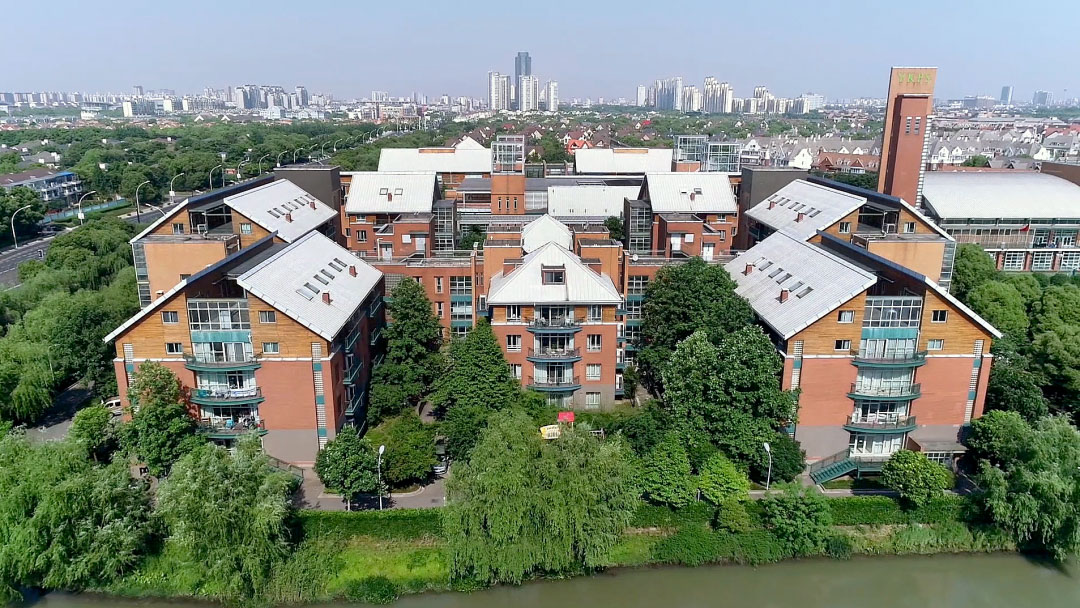
At the High School, the role of the teaching staff extends beyond the classroom. Alongside acting as academic instructors, teachers also supervise extracurricular activities and act as mentors for the children in their everyday lives. Both inside and outside the classroom, students grow under the guidance and support of their teachers. This environment promotes an ease of communication between teachers and students, and mutual sense of trust. In this warm, inclusive and secure environment, students can fully devote themselves to learning and growth. The teachers take special care to recognise positive character traits, and have various strategies to reward students for them, such as a unique postcard reward system and character reward dinners.
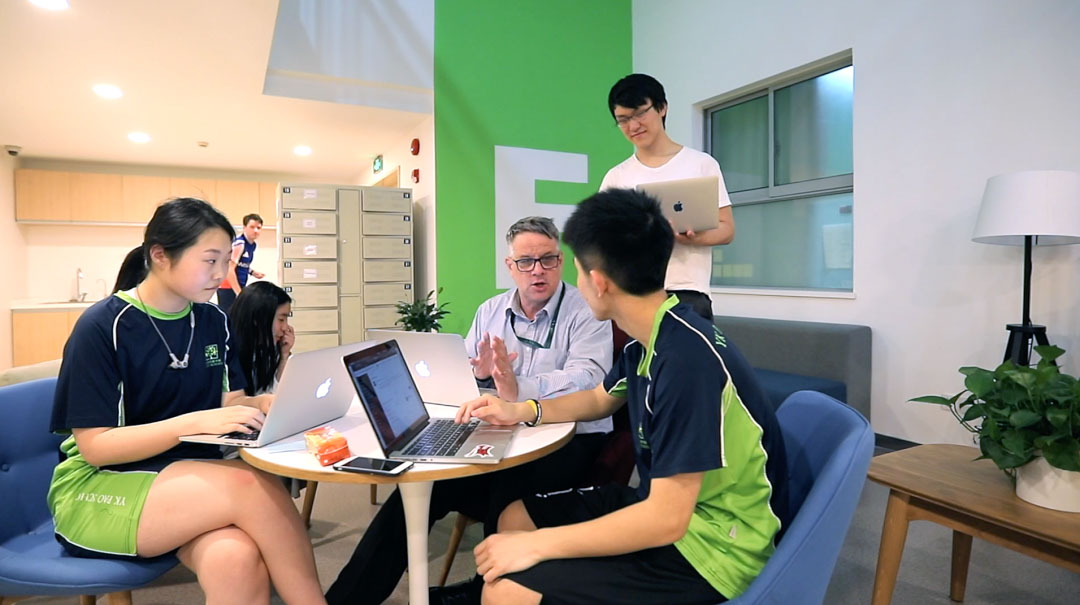
There are 8 Houses (A to H House) on Songjiang campus, which are home to both students and teachers. One of the elements that makes the programme so unique is the dedication of the housemasters and housemistress, who are teachers living alongside the students. In addition, the houses each have teacher “dorm parents” who live in the same house as them. One of the core benefits of this system is that teachers, who often kindly support the students outside of class hours, are able to truly get to understand their students and give them personalised care.
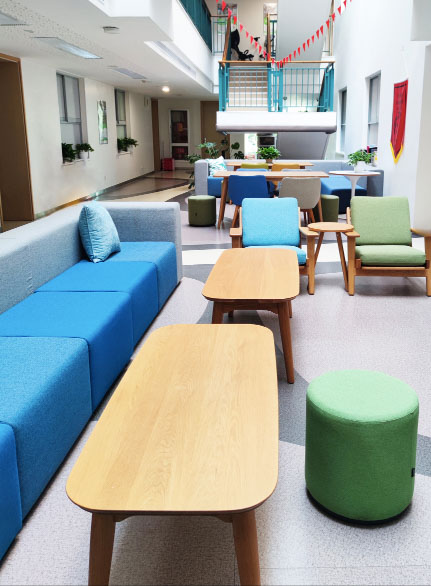
Students in residence halls are separated by gender, with each building home to students of different ages. The mixed-age residential arrangement creates a healthy and secure environment for students on campus which allows them to boost their social skills. It allows younger students to learn from the older students, and in turn, the older student can learn from the younger as well. The boarding programme also appoints students to support running the dorms – called prefects. Each House has a strong prefect team, led by a Head Prefect, who supports the house logistically, leads house events, participates in the Xueyuan system, and serves as a mentor for the other house members. The prefect system allows the students charged with these responsibilities to both help teachers with their work and strengthen their own organisational and leadership skills, whilst cultivating a sense of belonging in their boarding house.
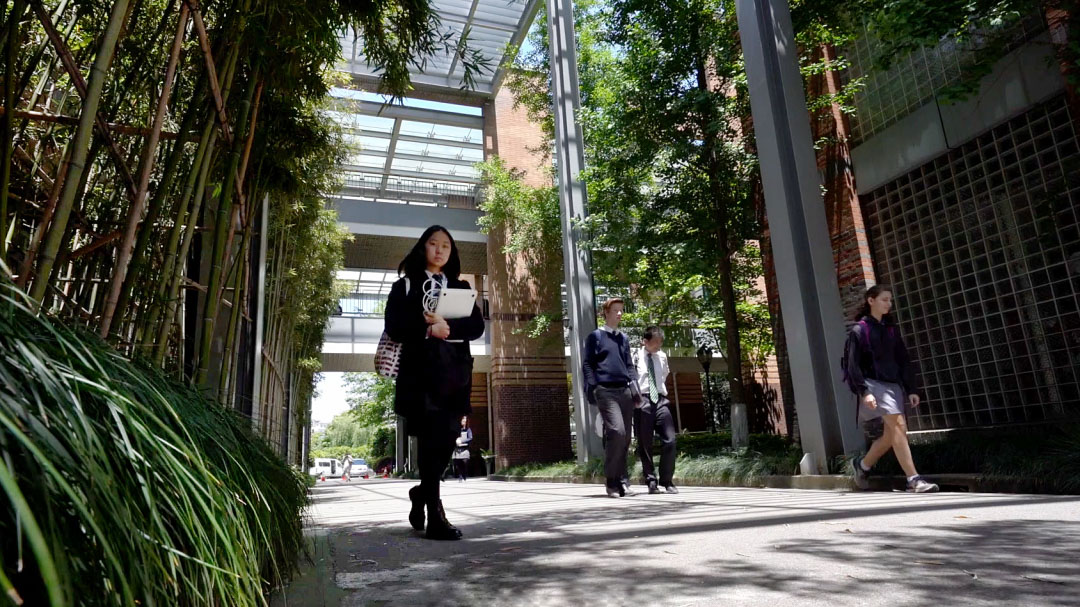
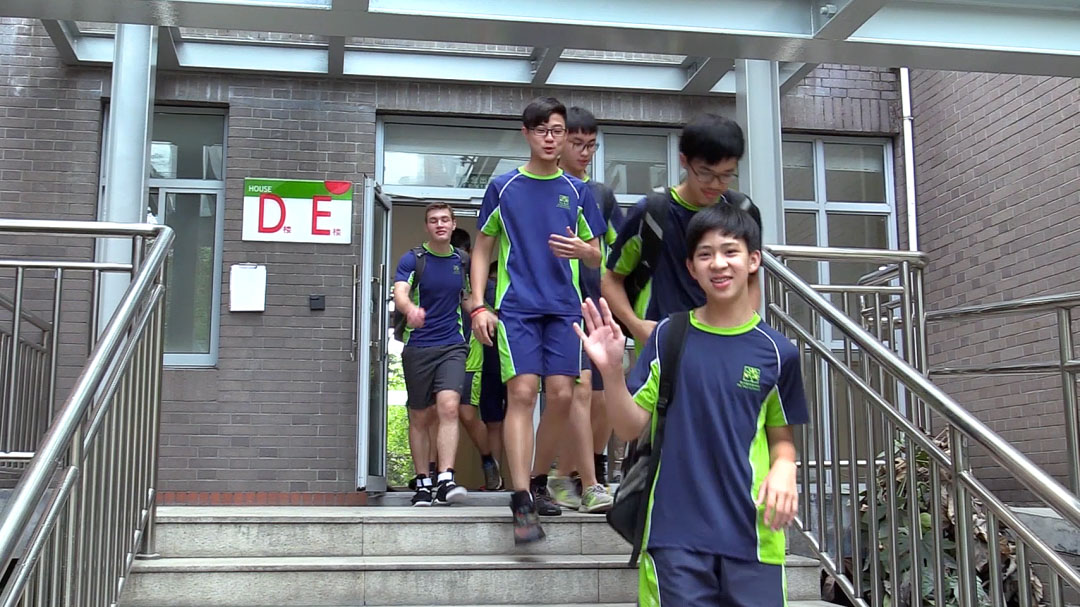
According to Tom, Year 10 Head Prefect, there are 8 prefects in the G House where he lives, with each on duty one day a week. The most important tasks during on-duty days include checking whether students are wearing their uniform correctly in the morning, assisting teachers in the evening self-study time work and urging students to turn in their electronic devices at bedtime. In addition, prefects also assist teachers in the epidemic prevention work of their respective residence halls, alongside organising monthly House activities and other recreational opportunities.
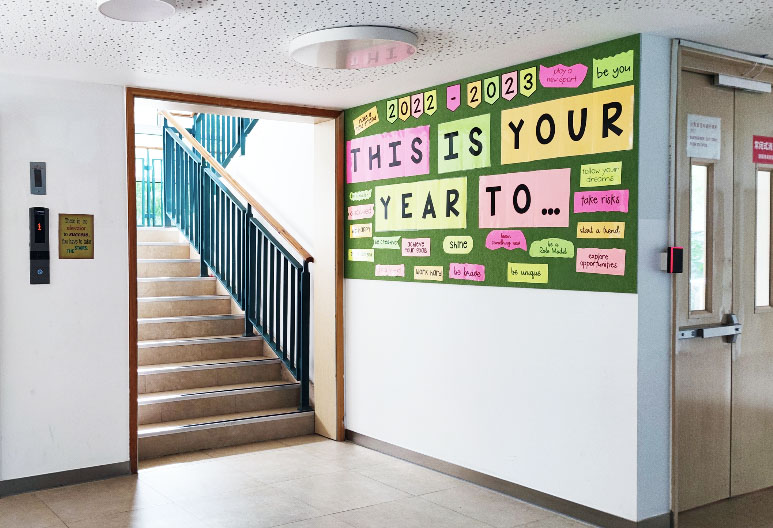
On a typical day, the students rise around 7:00am to get ready and eat breakfast. Before the first class starts at 8:00am, students are also allowed to read in the library. After classes finish for the day, students can choose to follow their interests by participating in school-organised or student-led co-curricular activities or club activities. From Monday to Thursday, students can participate in two different co-curricular activities each day, which they can adjust by managing their own schedules. There are a wide variety of activities from which to choose, among them Chinese cultural activities, sports, performing and visual arts, outreach activities, and taking part in community service.
Co-curricular activities (CCAs) play an important role in the goal of whole-person education - acting to broaden and extend students' traditional classroom education. Through CCAs, students can develop interests, expand hobbies and embrace new challenges. And, by doing so, have the opportunity to become more independent, gain more responsibility, develop social skills and built friendships.
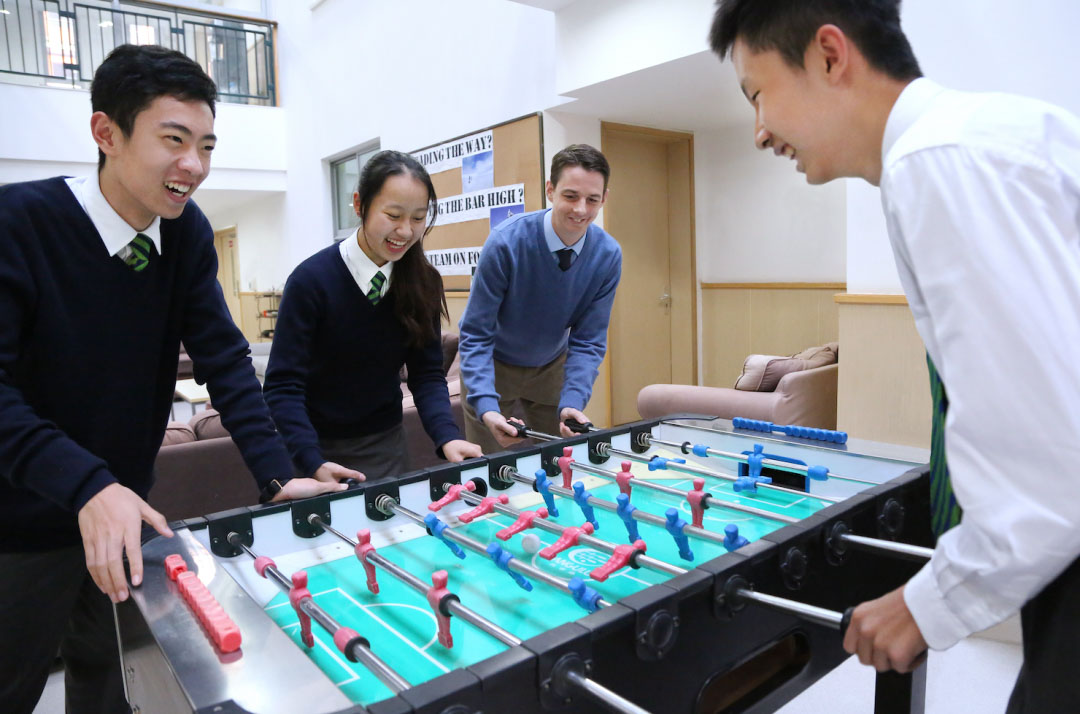
In the evening, students have from 7:15-9:00pm as study time. During this time, Year 9 students do their homework in the classroom or study independently under the guidance of the teachers. Year 10 students and above study in their residence halls, the library, or the Oxygen Bar.
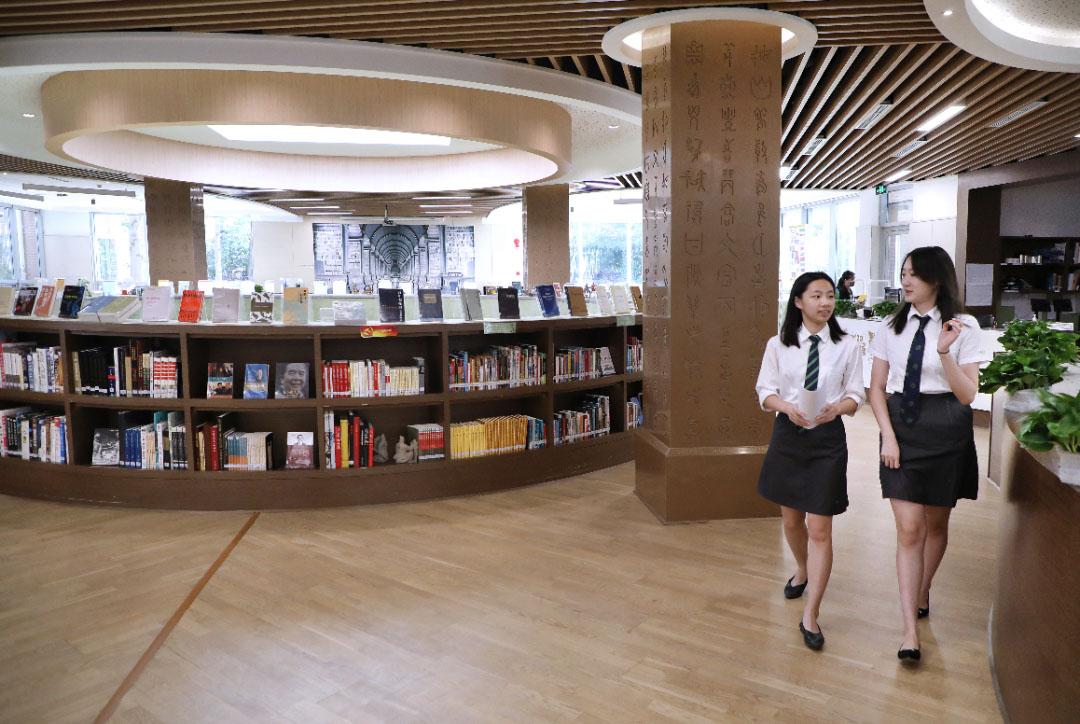
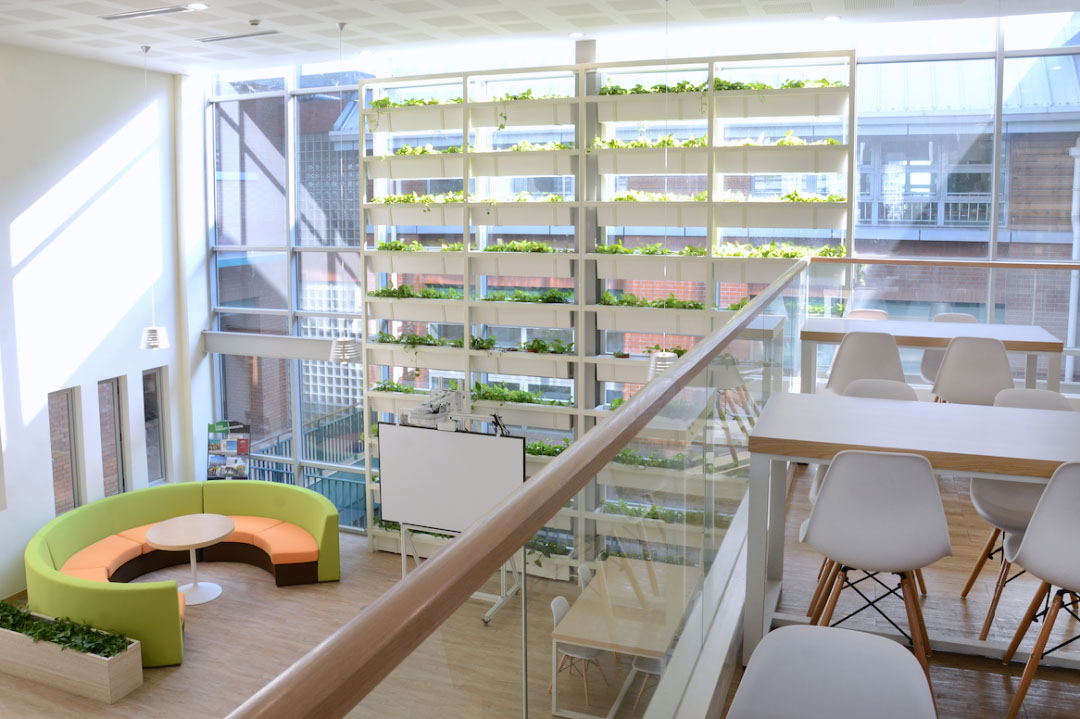
Library and Oxygen Bar
After the evening self-study period is completed, the students have free time to relax and socialise. It is then that the tranquil campus bursts into life once more, with the running track and other popular locations on campus busy with students enjoying their time together.
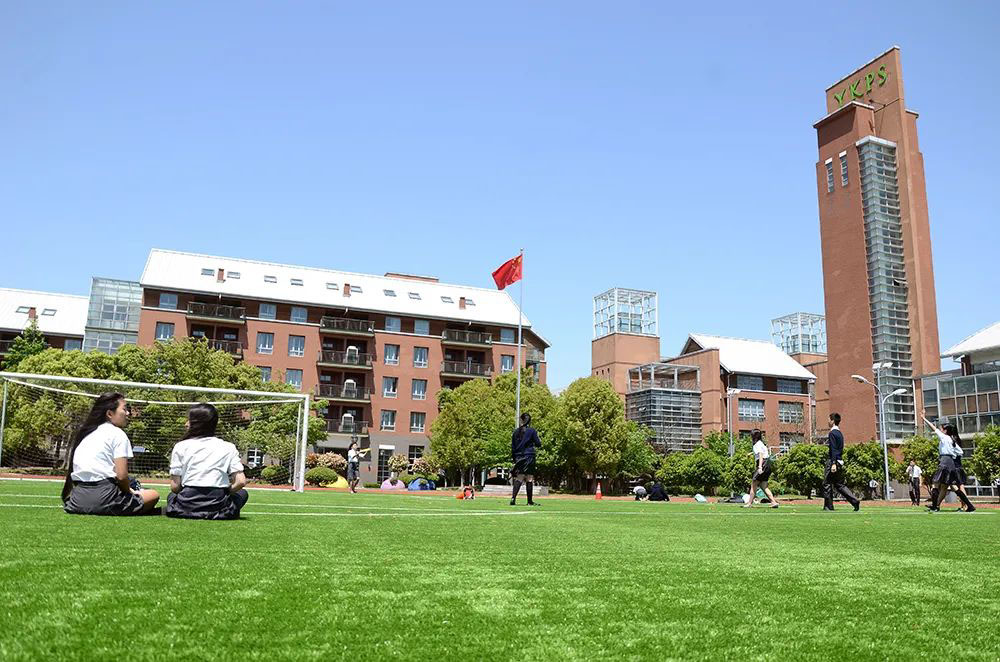
What element of boarding life has most surprised high school students, especially new Year 9 students? Let's take a look at their answers:
01
What has surprised you the most
about boarding life?
Aina Y9: The biggest surprise for me is that the residence hall has a common area full of pillows and plushies on the sofa! It is a comfortable place to read a book or chat with friends. When I lay down on the giant teddy bear, my troubles just seem to drift away.
Harrison Y9: The biggest surprise for me is that I’ve had to learn how to get along well with my roommates and classmates. Previously, I only interacted with my classmates during class time, but now we have more time to chat and I have been able to get to know them more deeply. This has helped me develop my social skills.
Katharina Y9: What surprised me the most about boarding life is simply the fact that I live at school! I get to turn the time travelling to and from school into more sleeping time. My dorm mates are also surprisingly funny and easy to get along with.
Kiran Y9: I didn't expect school life to be so vibrant and fun, and it also gave me the opportunity to improve my self-management skills.
Tom Y10: What most surprised me about boarding life is the new lifestyle. In the first week of school, I found that life on campus is different from home, but it is very interesting. For example, everything is so close by. Friends are just next door in the next residence hall. The playground is within walking distance too. It is a great place to watch the sunset with your friends. Also, because the school limits screen time, we have to find other ways to have fun. We gather in the common area of dormitories every morning and night to play chess, and play cards before going to bed. Overall, I would say living on campus with many people your own age always brings lots of surprises.
02
What do you most look forward
to doing after school?
Aina Y9: During most of the flex time after CCA, I read or study on my own in the library. I like the atmosphere there, especially the row of bamboo plants in front of the writing desks. When I lift my pen and look up to see the green bamboo plants, I feel calm at once.
Harrison Y9: I have been involved in preparations, such as rehearsals, for the Heart On Fire charity concert for the past two weeks. Recently, I have needed to spend almost all of my post-CCA time in the auditorium. Otherwise, if I have time, I may do some extracurricular reading or other activities in the dorm.
Katharina Y9: I feel the school’s timetable is already structured, which makes arranging my free time simple. Things I haven’t finished throughout the school day I finish in my own free time. I mostly look forward to seeing my friends and attending my favourite music CCAs (I must say the variety of CCA choices here is great). I also like to read for leisure and to go for a stroll around the track after dinner.
03
Compared to non-boarding life,
what has been the biggest change
since you started boarding?
Azuo Y9: After starting boarding life at Pao School, I discovered I had to manage my own time quite a bit. On the one hand, I need to manage my schoolwork, which involves ensuring the study environment is good (tidy and clean) and keeping track of assignments and turning them in on time. On the other hand, I am also responsible for managing my spare time. Since I take part in the swimming CCA every day, I must manage my time very carefully, including things like mealtime, PCR testing, bathing, and evening self-study time. If I do not, my schedule becomes very tight.
Katharina Y9: I became a lot more independent. Although it has only been around two weeks since I started boarding, the difference is still obvious. Now, I want to clean up my own room at home more and I also need to prepare to pack every weekend to move back into my dorm on Monday mornings.
04
Before you started boarding,
did you have any worries about what
it would be like?
If so, what did you worry about?
Do you still worry about it now? Why?
Aina Y9: Before boarding began, I worried I would not be able to adjust to it. For the first two days, I found it hard to fall asleep. You could say I had insomnia for a day or two. But it's been a lot better this week, with basically no issues. I’m enjoying boarding life.
Azuo Y9: Before I became a boarding student at Pao School, I worried most about if I would be able to get along with my roommates. Happily, we get along well so far, and we have had no conflicts in the first two weeks. If we do have a disagreement, it is easy enough to resolve it as long as both sides are willing to compromise a bit. For instance, some people in our dorm prefer to go to bed later, while others like to go early. Our solution is to find a compromise that is acceptable and fair to all.
Harrison Y9: Before boarding, I was actually most concerned that I would not be able to adapt to the school's early morning schedule. But I don’t worry about that anymore; I have adjusted well. It is easy enough to get up at 6:30am; I just turn in early at night to make sure I get enough sleep.
05
Do any of your teachers live in the
same dorm as you?
Aina Y9: My physics teacher Ms. Addison and our tutor Ms. Susie both live in the same building as me. We do not usually casually chat with each other, but we will greet each other when we see each other, and I talk to teachers when I have a specific reason to do so.
Harrison Y9: My geography teacher, Mr. Davison, lives on the same floor as us. Since he is my teacher, and geography is a subject I like very much, I usually talk to him about my homework and non-class related things too.
Our approach helps students develop independence which builds confidence; we encourage students to tackle their problems with our support, we help students to follow through on their commitments to their conclusion, and when things do go wrong, we work with them to reflect and learn from those experiences so they can make better choices moving forward.
—— Duncan Weller,
Dean of High School Student Life